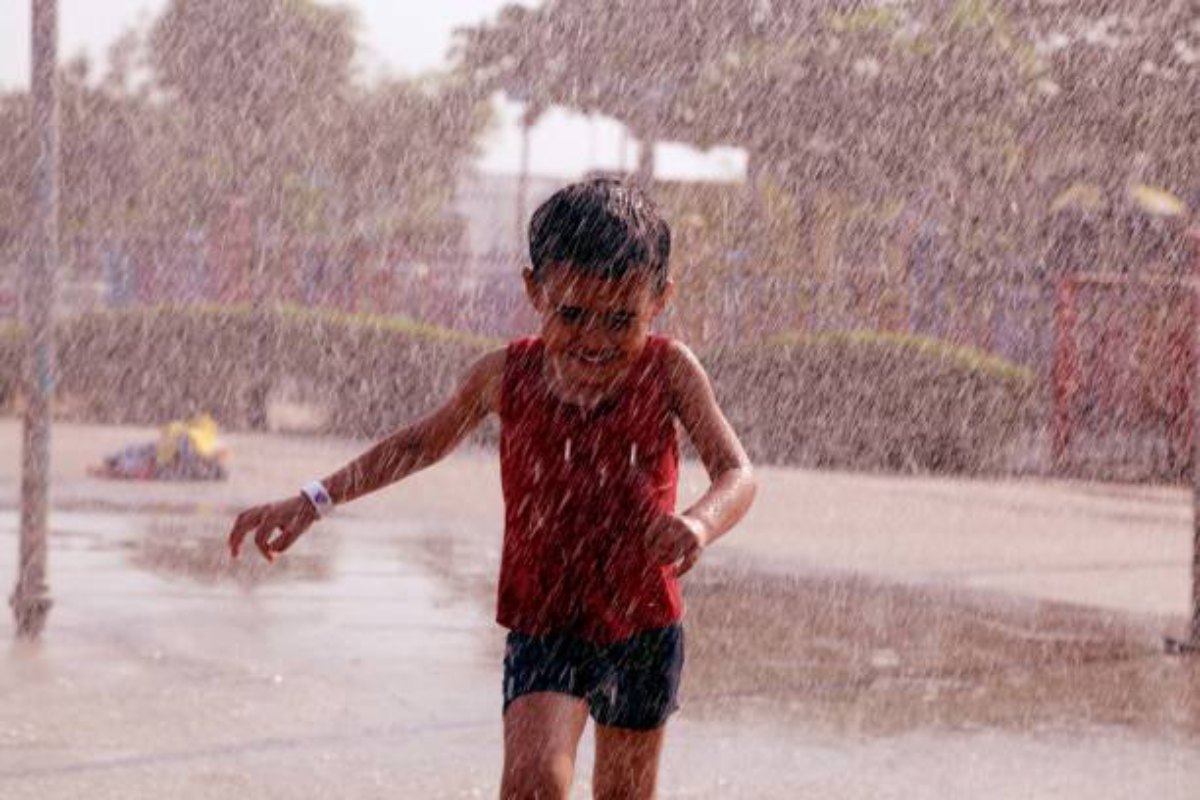Schools shut as weather dept predicts heavy rains, thunderstorms in four TN districts
The districts expecting significant rainfall include Theni, Tirunelveli, Tenkasi, and Madurai.
Director General of Meteorology Dr Mrityunjay Mohapatra said, “Rainfall is expected at most places over northwest India from tomorrow and the day after.

[Representational Photo : iStock]
After scorching heat, here’s good news for people living in the northern parts of the country. The Indian Meteorological Department (MET) predicted relief from the heat wave from Wednesday. Northwest India is reeling under severe heat-wave conditions for the past few days.
On Tuesday, 23 May, the minimum temperature was recorded at 30 degree Celsius while the maximum temperature was 43 degree Celsius. On May 24, the minimum temperature is predicted to be 28 degree while the maximum would be 38.0 degree Celsius.
Advertisement
On May 25, the minimum temperature is expected to go down further to 25 degree Celsius while the maximum temperature will be 36 degree Celsius.
Advertisement
Speaking to The Statesman, Director General of Meteorology Dr Mrityunjay Mohapatra said, “Rainfall is expected at most places over northwest India from tomorrow and the day after. He said there will be no heat-wave condition till 28 May and the temperature is likely to rise again afterwards”.
According to the Met office, Chandigarh, Punjab and Haryana are witnessing rising temperatures as the entire northwest India is reeling under severe heat waves. The Met office had issued a heat-wave alert last week. The alert was for May 22, for south Haryana, Delhi, south UP, north MP, Jharkhand, Bihar and Bengal.
“I agree that mercury is rising high. However, this usually happens in the month of May in the north part of India. The mercury rises and then there are storms with rain which brings down the temperature. So, this is the pattern of the weather in northern India”.
Reacting to the claim that owing to global warming and climate change northern India is witnessing such a rise, the Met director said, “I think that rising temperature has nothing to do with global warming and climate change. Northern India goes through extreme weather in small periods in some parts of summer. And that is expected. Something that is expected in these months cannot be exceptional. And surely temperatures are not rising because of climate change or global warming.”
According to reports, Chandigarh has been witnessing rising temperatures for the past two days. On Sunday, the temperature exceeded 40 degrees Celsius, and it did rise again on Monday.
Punjab and Haryana are also reeling under the scorching heat-waves with numerous locations recording temperatures as high as 44 degrees. In the next two days, Punjab, Haryana, and Chandigarh may get rain as a result of the Western Disturbance.
Heat-wave is declared when the maximum temperature is above 40 degree Celsius. A severe heat wave is declared when the temperature is above 40 degree Celsius. Northern India however, witnesses heat-waves during summer months and cold waves during winter months.
Advertisement